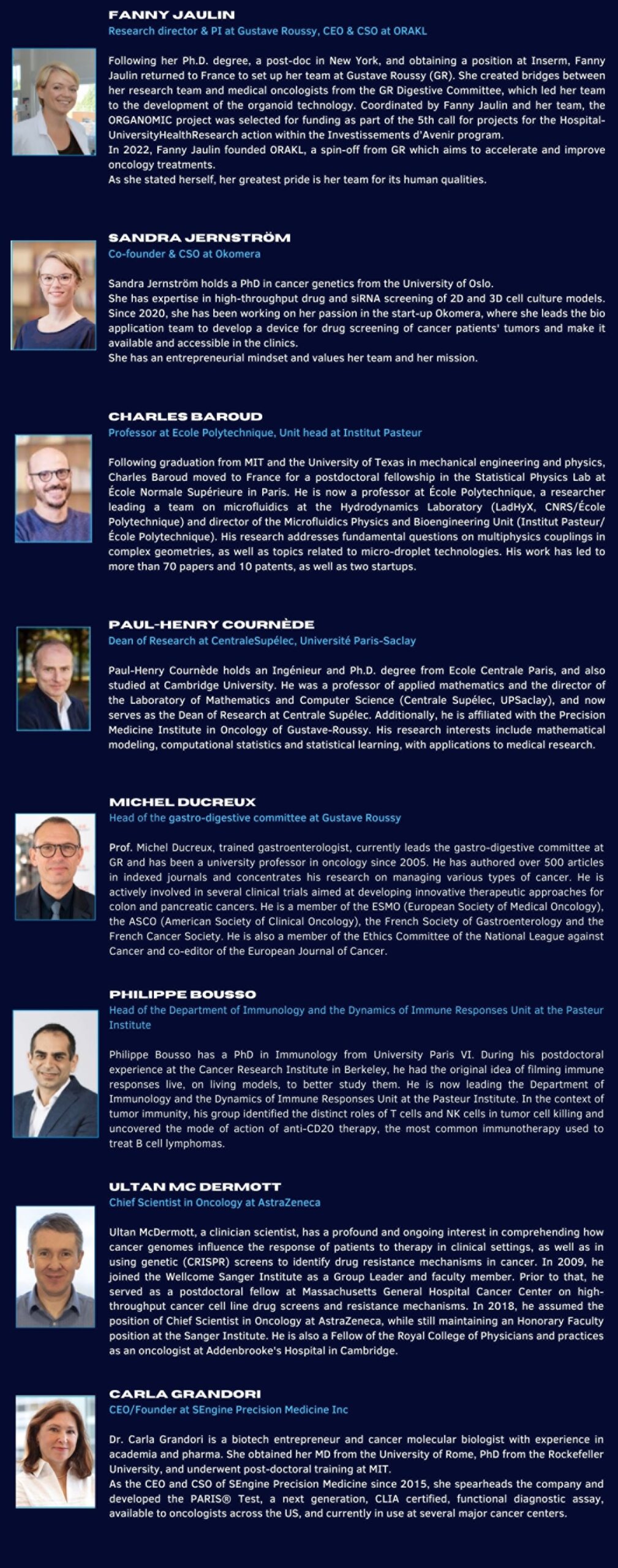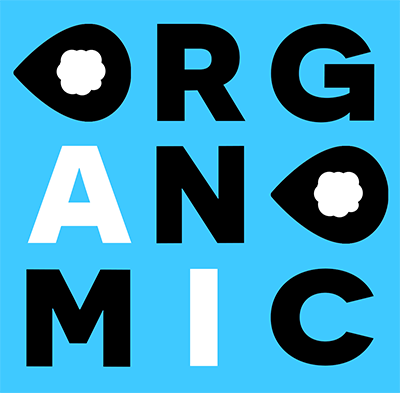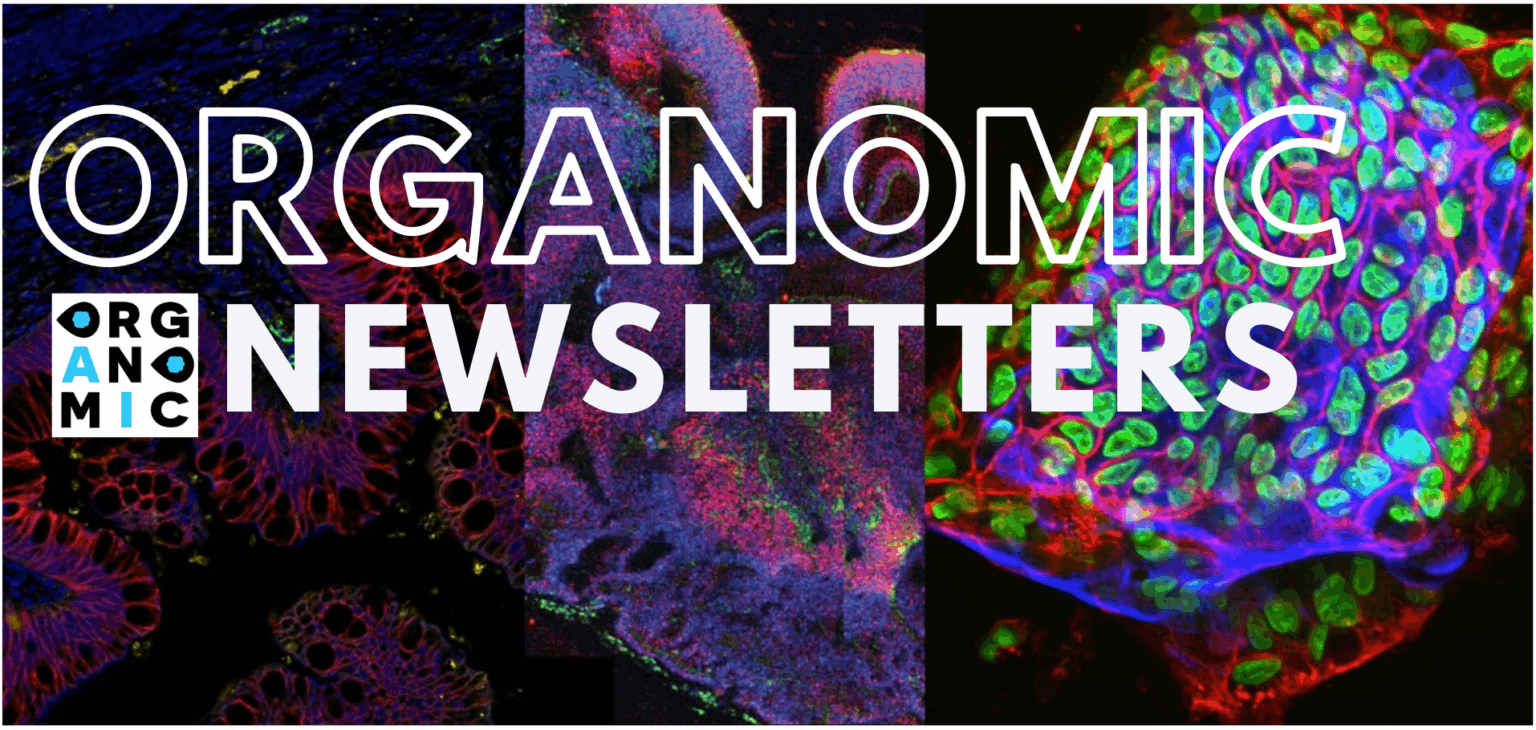
Newsletter #5 - October 2023 -
LITTERATURE FOCUS : CAR-T CELLS AND CANCER by Raphael Merand
Cell therapy - Challenges in solid tumor
While adoptive cell therapies, notably CAR-T cells, have revolutionized the treatment of hematologic malignancies, its application in solid tumors has been met with several challenges and limitations. Solid tumors create a hostile microenvironment that shields them from immune detection and attack. Additionally, immunosuppressive factors within solid tumors can hinder the CAR-T cells’ activity. Furthermore, the potential for off-target effects and toxicity remains a concern, as CAR-T cells may inadvertently target and damage healthy tissues.
Ex-vivo models in CAR-T cell research
Studying CAR-T therapy for solid cancers involves the development of various models that replicate the complexities of these tumors. These models are essential for preclinical research and can broadly be categorized into three main types: Xenograft Models, Patient-Derived Xenografts (PDX) and Syngeneic Models. New primary models, such as organoid cultures and three-dimensional (3D) tumor models provide a more accurate representation of the tumor microenvironment and intercellular interactions. These miniature tumor models offer several advantages when studying CAR-T cells in the context of solid tumors such as:
- Studying the intra-tumoral heterogeneity
- Interrogating the tumor microenvironment through hetero-cellular co-cultures
- Participating in personalized medicine by providing a personalized model for testing the efficacy of CAR-T therapy.
- Enabling high-throughput screening and allowing researchers to test various CAR constructs, treatment regimens, and combination therapies more efficiently.
Conclusion
In summary, patient-derived organoids offer a powerful tool for studying CAR-T cell therapy in solid tumors. They provide a more clinically relevant and personalized platform for assessing CAR-T cell behavior within the tumor microenvironment, aiding in the development of more effective and patient-specific treatment strategies for solid cancers.
Immunogram - RHU project
The project aims to investigate inter-patient variability to CAR-T cell therapy focusing on tumor-intrinsic parameters via setting up co-cultures of CD19-expressing PDOs and anti-CD19 CAR8-T cells and assessing cytotoxicity and INF-γ production. In parallel, CAR8-T cells will be monitored and tracked in order to identify T-cell dynamics and correlate it with PDO sensibility to killing.
Unlike other studies challenging patient-derived organoids with CAR-engineered cells, our project stands out by using a cohort of 5 colorectal PDOs with extensive knowledge of patient’s clinical and meta-clinical data which will benefit our analysis of inter-patient variability to CAR-T cells. Indeed, the cohort used in these studies ranges from one PDO to 14 breast cancer PDOs in Dekkers et al.
Newsletter #4 - September 2023 -
ORGANOMIC PHENOTYPIC SCREENING by Emilie Gontran
The field of phenotypic screening of organoids appears to be fairly recent, with papers ranging from 2020 to 2023. Among the 8 targeted publications on organoid phenotypic screening, the main conclusions are as follows:
1. Experimental and technical design
- Duration of experiments varies from 72 h to 7 days.
- Studies mainly concern CRC and PDAC patients and rely on generally 1 to 4 different patients
- Duration of experiments varies from 72 h to 7 days.
- Bright-field imaging gives access to image metrics that can predict organoid viability in response to treatments.
- Image analysis to predict viability is often based on a convolutional neural network (CNN) model.
- The CNN models are trained with fluorescence images from functional assays to assess organoid viability as ground truth labels.Some studies calibrate their model using functional tests that render the cells fluorescent, enabling them to assess organoid viability and used as “ground truth”.
2. Phenotypic readouts
- Most studies focus on the morphological description of organoids. Texture-based studies are less well documented.
- Most of the studies are based on bulk (= organoid culture in hydrogel droplets) characterization of organoids, which biases the assessment of response to treatment because, at the very least, the population of organoids tested is desynchronized in size (tumor size potentially influencing response to treatment).
3. Where do we stand?
We might find a place among this emerging field of functional precision medicine based on organoid phenotypic screening with the standardization of our experimental protocol offering organoid size-synchronization and thus ultimately better reproducibility in drug test results. We propose an original approach combining organoid machine learning representations and radiomics analysis to provide an in-depth drug efficacy report for each tested PDO, pursuing the goal of proposing to each patient a personalized treatment.
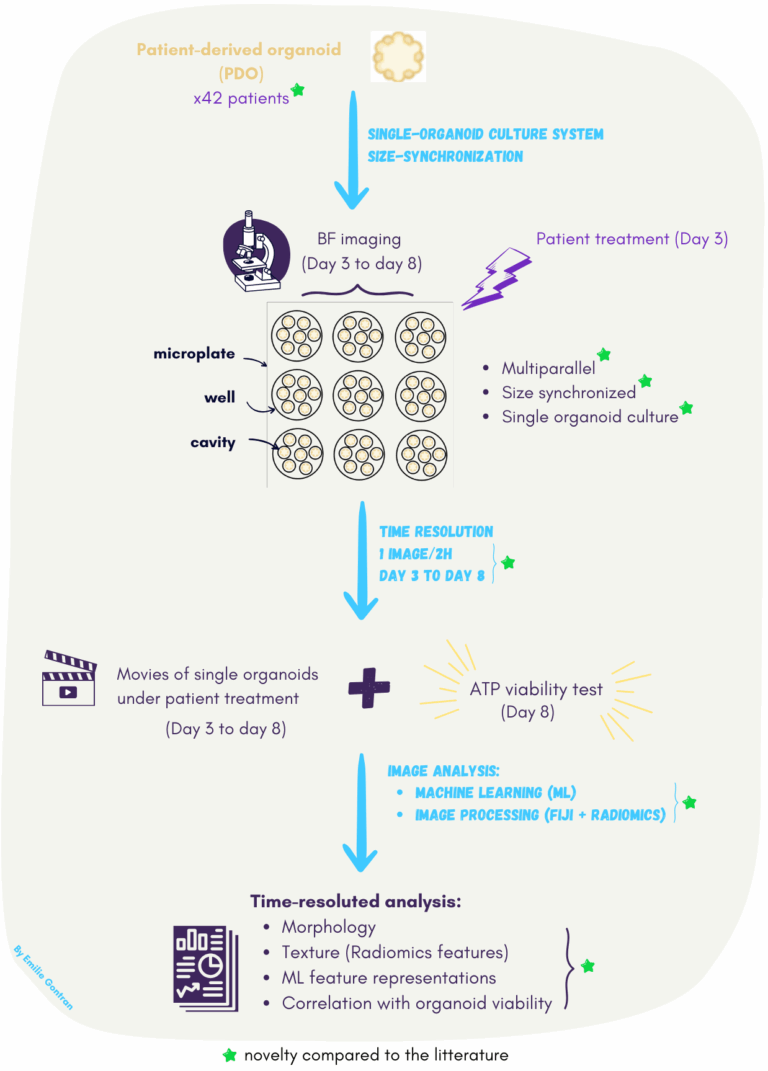
Newsletter #3 - June-July-August 2023 -
GRENOBLE ECOLE DE MANAGEMENT by Dima Louis and Janna Rose
You might have noticed that we have special guests during Consortium Meetings and Operational Meetings. Indeed, the RHU Organomic’s Team is currently being studied by two researchers from the Grenoble Ecole de Management.
The School
Grenoble Ecole de Management (GEM) is one of the top business schools in France. Situated in one of France’s technology hubs, several GEM researchers specialize in digital sciences and innovation. They teach in many programs, including the M.Sc. programs of Big Data, Technology Management and Innovation, and Biomedical Management.
The Researchers
Dima Louis – Academic Director of the Doctorate of Business Administration Program. Over 20 years of professional experience in Leadership Development in different countries and across different industries. Research expertise: Leadership, Power dynamics in organizations, Individual and organization identity.
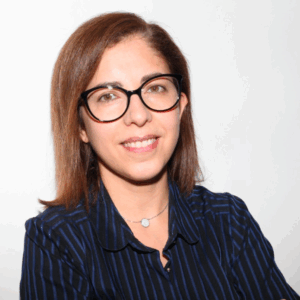
Janna Rose – A professor at GEM since 2016, conducts research in Health and Biocluster Systems, Patient Expertise, Laboratory Management, Ethics, Gender Studies, and Social & Environmental Responsibilities. Served three years on EIT Health’s ELSI Board (for ethics). Came to GEM after studying Ethnobotany (MA in Anthropology – Tulane University and a PhD in Biology – Florida International University). Conducted field research in Brazil and Turkey, with NIH and Fulbright grants.It has been 15 years (technology is changing!), but she worked with HPLC, Mass Spec, cell cultures, and bacterial bioassays.
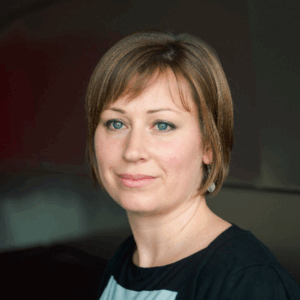
The Objective
Janna and Dima aim to contribute to knowledge in the field of innovation management in the healthcare sector. They are interested in studying how actors from different organizations work together to achieve a goal that they could not attain independently. When working together, new configurations of actors are put into play. Dima and Janna would like to examine how these groups might benefit technology innovation, along with procedures for evaluating the social impact of these technologies. They will also examine the challenges that arise as a result of the interdependencies between actors, along with how individuals and groups may navigate these sometimes conflicting ties and interests.
Some Foundational Studies in Innovation Management
Just in case anyone would like some ‘lite’ summer reading, these are a few foundational articles from the field of Innovation Management. Perhaps our social scientists will write something like this, as the study progresses.
Newsletter #2 - May 2023 -
WHERE ARE WE ON FUNCTIONAL PRECISION MEDECINE?
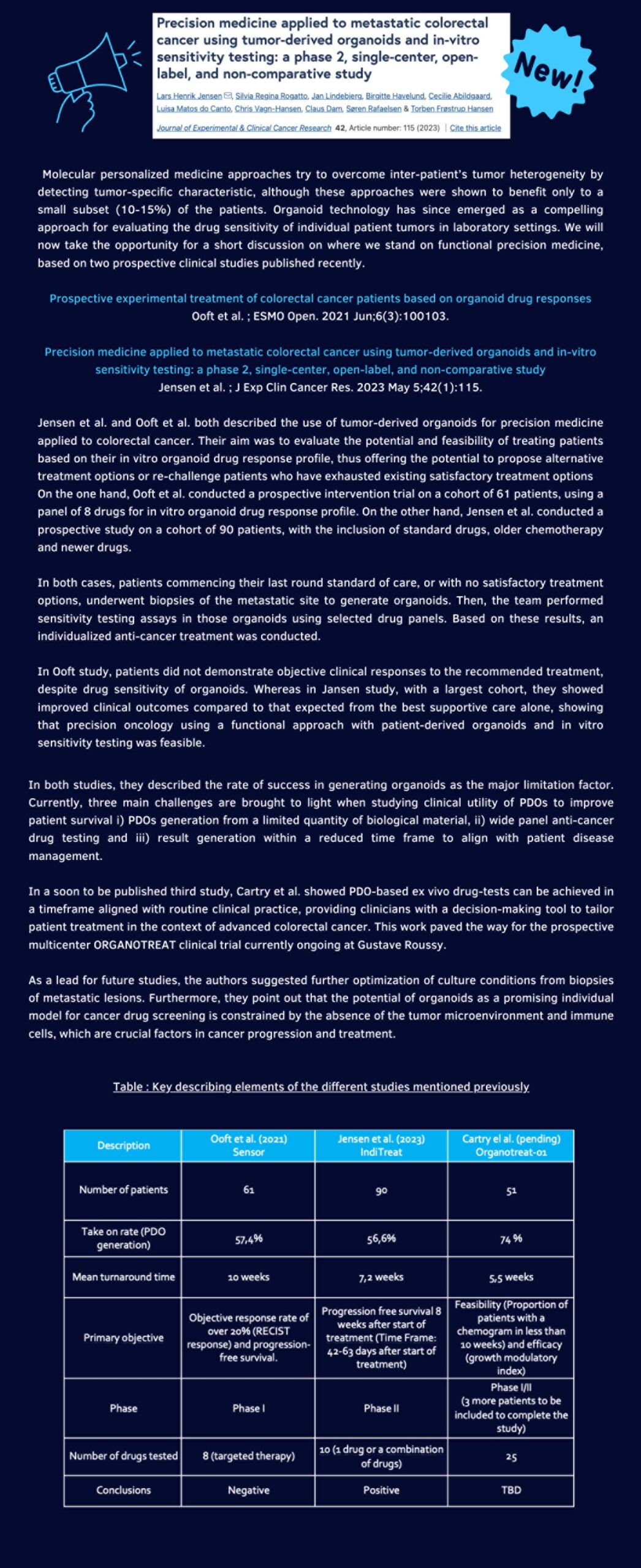
Newsletter #1 - April 2023 -
PORTRAITS OF THE WORKPACKAGES LEADERS
